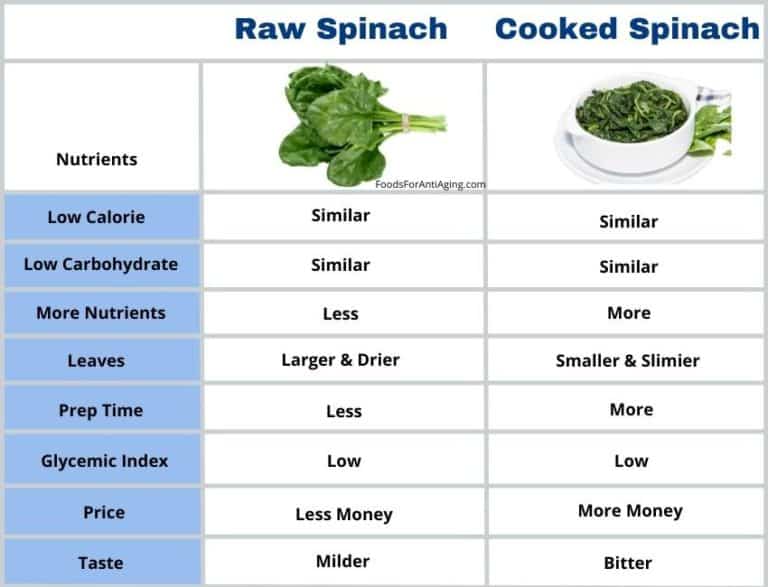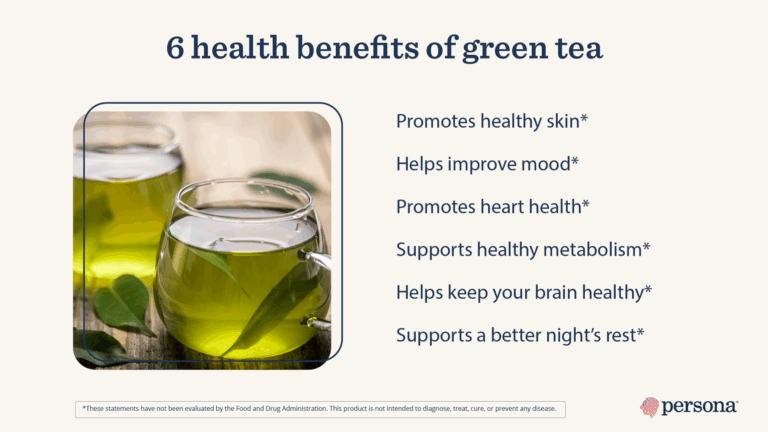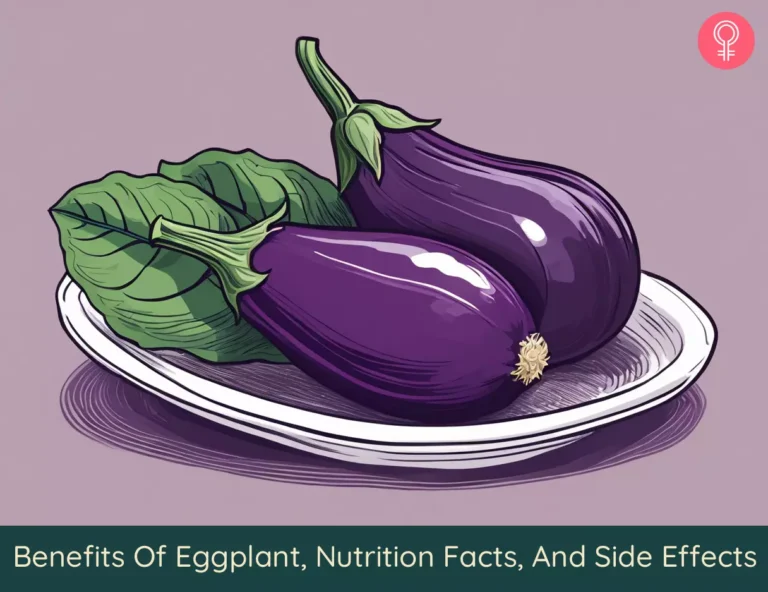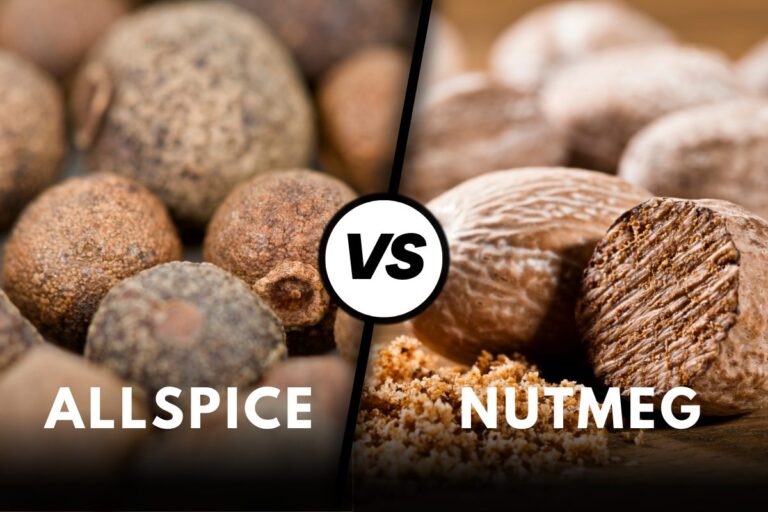From Blood Sugar to Gut Health: The Orchestration of Apple Cider Vinegar – A Journey into the Inner Ecosystem
In the vast and intricate symphony of human physiology, few elements play a more profound and often underestimated role than the gut. It is a bustling metropolis within us, home to trillions of microorganisms, the command center for digestion, nutrient absorption, and a silent guardian of our immune system and mental well-being. For centuries, humanity has sought elixirs to nurture this inner garden, often turning to the simplest of remedies born from nature’s bounty. Among these, Apple Cider Vinegar (ACV) stands out – a humble kitchen staple now garnering significant scientific attention for its far-reaching benefits, particularly in the delicate balance between blood sugar regulation and the flourishing of our gut microbiome.
Our journey begins not with the gut directly, but with a familiar metabolic challenge: blood sugar. The modern diet, often laden with refined carbohydrates and sugars, can send our glucose levels on a roller coaster, leading to insulin resistance, inflammation, and a cascade of metabolic woes. It is here that ACV first enters the scientific spotlight, demonstrating a remarkable ability to temper these glycemic spikes. Yet, as we peel back the layers of its influence, we discover that ACV’s impact extends far beyond mere blood sugar control, reaching deep into the very core of our digestive health. Its acetic acid, the primary active component, acts as a molecular maestro, orchestrating a series of beneficial physiological responses that reverberate through our entire inner ecosystem.
For the knowledgeable reader, this isn’t just about another supplement; it’s about understanding the intricate dance between diet, metabolism, and the microbial world within. This article delves into five science-backed benefits of Apple Cider Vinegar, revealing how this fermented apple juice transitions from a simple folk remedy to a potent ally in our quest for optimal gut health, starting with its well-established role in blood sugar management and cascading into the deeper mechanisms that fortify our inner sanctuary.
The Gut: A World Within – Before the Vinegar Enters
Before we explore ACV’s specific contributions, let’s briefly set the stage by appreciating the complexity of the gut. It’s not merely a tube for processing food; it’s a dynamic ecosystem, a "second brain," and a crucial interface with the outside world.
- The Microbiome: Trillions of bacteria, fungi, viruses, and other microorganisms reside in our intestines, collectively known as the gut microbiome. This community is as unique as a fingerprint, shaped by diet, lifestyle, genetics, and environment. A diverse and balanced microbiome (eubiosis) is linked to myriad health benefits, while an imbalance (dysbiosis) is implicated in everything from digestive disorders to autoimmune conditions and mood disorders.
- The Gut Barrier: A single layer of epithelial cells, sealed by "tight junctions," forms a protective barrier preventing harmful substances (toxins, undigested food particles, pathogens) from entering the bloodstream. When this barrier becomes compromised – often referred to as "leaky gut" or increased intestinal permeability – it can trigger systemic inflammation and immune responses.
- The Gut-Brain Axis: A bidirectional communication highway connects the gut and the brain, influencing mood, cognition, and stress responses. The microbiome produces neuroactive compounds, and the vagus nerve acts as a crucial messenger.
- Immune System Hub: Approximately 70-80% of the body’s immune cells reside in the gut-associated lymphoid tissue (GALT), making the gut a cornerstone of our immune defense.
Understanding this intricate landscape allows us to truly appreciate how a seemingly simple substance like ACV can exert such profound and multifaceted effects. Now, let’s explore its five key contributions, beginning with its most widely recognized power.
>
1. Stabilizing Blood Sugar: The Gateway to Gut Harmony
The journey of ACV’s benefits often begins in the realm of metabolic health, specifically its remarkable ability to influence blood glucose levels. While seemingly distinct from gut health, this foundational benefit creates a more stable internal environment that indirectly, yet powerfully, supports the gut.
The Mechanism:
The primary active component of ACV, acetic acid, is the hero in this narrative. Research, notably from studies published in journals like Diabetes Care and European Journal of Clinical Nutrition, has consistently demonstrated ACV’s capacity to:
- Improve Insulin Sensitivity: Acetic acid appears to enhance the body’s response to insulin, the hormone responsible for shuttling glucose from the bloodstream into cells for energy. Improved sensitivity means cells can absorb glucose more efficiently, preventing its accumulation in the blood.
- Reduce Post-Meal Glucose Spikes: When consumed with a carbohydrate-rich meal, ACV can significantly blunt the rise in blood sugar levels. One proposed mechanism is its ability to inhibit the activity of certain digestive enzymes, such as amylase, which are responsible for breaking down complex carbohydrates into simple sugars. By slowing this breakdown, glucose enters the bloodstream at a more gradual pace.
- Enhance Glucose Uptake by Muscles: Studies suggest acetic acid may promote glucose uptake by skeletal muscles, shifting glucose out of the blood and into tissues where it can be used or stored.
The Gut Connection:
How does stable blood sugar translate to gut health? The link is profound and multi-layered:
- Reduced Inflammation: Chronic high blood sugar (hyperglycemia) is a pro-inflammatory state. It can damage blood vessels, cells, and tissues throughout the body, including those lining the gut. By mitigating these spikes, ACV helps to reduce systemic inflammation, creating a less hostile environment for the delicate gut lining and its microbial inhabitants. A gut exposed to constant inflammation is prone to barrier dysfunction and dysbiosis.
- Favorable Microbial Environment: Certain pathogenic bacteria thrive on readily available simple sugars. By reducing the rapid influx of glucose, ACV may indirectly starve some less desirable members of the gut community, preventing their overgrowth. Conversely, a stable energy supply (less extreme glucose fluctuations) could support the health and metabolic activity of beneficial bacteria.
- Improved Energy for Gut Cells: The epithelial cells lining our gut require a stable energy supply to maintain their integrity and function. By promoting more consistent glucose utilization, ACV indirectly supports the energy metabolism of these crucial cells, which are vital for maintaining the gut barrier and performing their digestive and absorptive roles.
In essence, ACV’s ability to act as a metabolic modulator creates a calmer, more balanced internal milieu, laying the groundwork for a healthier gut ecosystem that is less stressed by inflammatory triggers and more conducive to the flourishing of beneficial microbes. It’s the first ripple in a pond of benefits.
>
2. Modulating the Microbiome: Cultivating the Inner Garden
Beyond its indirect effects through blood sugar, ACV may exert more direct influences on the composition and activity of the gut microbiome, though this area remains ripe for further human-specific research. The idea that ACV, a fermented product itself, could interact favorably with our internal fermentation factory (the gut) is intuitively appealing, and emerging science provides tantalizing clues.
The Mechanism:
While ACV is not a probiotic in the traditional sense (it doesn’t typically contain live, viable strains of beneficial bacteria like yogurt or kombucha, especially if pasteurized), its unique composition, particularly acetic acid and other organic acids, suggests several pathways of influence:
- Antimicrobial Properties: Acetic acid is a well-known antimicrobial agent. In the acidic environment of the stomach, and potentially in the upper small intestine, ACV may help to reduce the proliferation of certain pathogenic bacteria and yeasts (like Candida species) that are sensitive to acidic conditions. By selectively inhibiting undesirable microbes, it could create space for beneficial species to thrive, a concept known as "competitive exclusion."
- pH Modulation: The gut’s pH gradient is critical for its function. The stomach is highly acidic, while the small intestine gradually becomes more alkaline, and the colon’s pH is slightly acidic to neutral. While ACV’s direct impact on colonic pH is likely minor due to dilution and buffering, its influence in the upper digestive tract could optimize conditions for enzyme activity and reduce the survival of ingested pathogens. Some theories suggest that a slightly more acidic environment in parts of the gut could favor the growth of beneficial lactic acid bacteria, which themselves produce organic acids.
- Prebiotic-like Effects (Indirect): While ACV doesn’t contain fermentable fibers (prebiotics) itself, its influence on digestion and nutrient absorption (discussed next) could indirectly benefit the gut microbiota. For example, improved digestion of carbohydrates in the small intestine means less undigested food reaching the colon, potentially altering the substrate available for microbial fermentation. If ACV improves the health of the gut lining, it could also indirectly support the mucus layer, which some beneficial bacteria utilize.
- Influence on SCFAs: Short-chain fatty acids (SCFAs) like butyrate, acetate, and propionate are crucial metabolites produced by beneficial gut bacteria when they ferment dietary fiber. While ACV provides acetate directly (as acetic acid), its influence on the microbiome could potentially enhance the production of other SCFAs by the existing gut bacteria. These SCFAs are vital for colonocyte health, gut barrier integrity, and immune modulation.
The Gut Connection:
A balanced and diverse microbiome is the bedrock of gut health. By potentially tipping the scales in favor of beneficial bacteria and against pathogens, ACV contributes to:
- Reduced Dysbiosis: A less hospitable environment for harmful microbes helps prevent their overgrowth, a key characteristic of dysbiosis, which is linked to IBS, IBD, and other chronic diseases.
- Enhanced SCFA Production: By fostering a healthier microbial community, ACV indirectly supports the production of vital SCFAs, which are the primary energy source for colon cells and play a crucial role in maintaining gut barrier integrity and modulating immune responses.
- Improved Immune Homeostasis: A balanced microbiome is essential for training and modulating the immune system. By promoting microbial balance, ACV contributes to a robust yet tolerant immune response, reducing the likelihood of inappropriate inflammation.
The modulation of the microbiome by ACV is a subtle but powerful act of cultivation, helping to prune the undesirable elements and nourish the beneficial ones, creating a more resilient and harmonious inner garden.
>
3. Fortifying the Gut Barrier: The Unsung Guardian
The intestinal barrier, often described as a "gatekeeper," is a critical line of defense. When this barrier becomes permeable – a condition colloquially known as "leaky gut" – it allows toxins, pathogens, and undigested food particles to "leak" into the bloodstream, triggering systemic inflammation and immune reactions. ACV may play a role in reinforcing this vital shield.
The Mechanism:
The direct mechanisms by which ACV fortifies the gut barrier are still being elucidated, but several hypotheses are supported by emerging research:
- Anti-Inflammatory Action: As discussed, ACV’s blood sugar-stabilizing and general anti-inflammatory properties contribute significantly. Chronic inflammation directly damages the tight junctions that seal the gut lining. By reducing inflammation, ACV helps preserve the integrity of these junctions, preventing their breakdown.
- Support for Mucus Production: The gut lining is protected by a thick layer of mucus, secreted by goblet cells. This mucus acts as a physical barrier and contains antimicrobial compounds. While direct evidence for ACV boosting mucus production is limited, a healthier, less inflamed gut environment, coupled with a balanced microbiome, is generally conducive to robust mucus layer maintenance.
- Indirect SCFA Support: If ACV does indeed promote a healthier microbiome and enhance SCFA production (as discussed in Benefit 2), then it indirectly supports the gut barrier. Butyrate, in particular, is a crucial nutrient for colonocytes, helping to maintain their integrity and strengthen tight junctions.
- Acidity and Pathogen Control: By reducing the burden of pathogenic bacteria and yeasts, which can directly damage gut epithelial cells and tight junctions, ACV indirectly supports barrier function. Pathogens often release toxins that compromise the gut lining.
- Improved Nutrient Absorption for Barrier Repair: A well-functioning gut barrier requires a constant supply of nutrients for cell repair and regeneration. If ACV enhances overall digestion and nutrient absorption (as we’ll see in Benefit 4), it provides the building blocks necessary for maintaining and repairing the gut lining.
The Gut Connection:
A strong, impermeable gut barrier is fundamental to overall health. By fortifying this barrier, ACV helps to:
- Prevent Systemic Inflammation: A leaky gut is a major driver of chronic, low-grade systemic inflammation, implicated in a wide array of chronic diseases, including autoimmune conditions, allergies, and metabolic disorders. By shoring up the barrier, ACV helps reduce this inflammatory burden.
- Reduce Toxin Exposure: Prevents the entry of harmful bacterial byproducts (like lipopolysaccharides, LPS) and other toxins into the bloodstream, which can trigger immune responses and cause cellular damage.
- Support Immune Homeostasis: When the gut barrier is intact, the immune system isn’t constantly on high alert, reacting to perceived threats from within the gut. This allows for a more balanced and appropriate immune response to actual threats.
- Improve Nutrient Utilization: A healthy barrier ensures that nutrients are absorbed efficiently and safely, preventing the absorption of undesirable compounds.
Fortifying the gut barrier is akin to strengthening the walls of our inner city, ensuring that only the desired elements enter and that the delicate internal mechanisms are protected from external threats. It’s a critical layer of defense that ACV appears to support through a confluence of its actions.
>
4. Enhancing Digestion & Nutrient Absorption: Optimizing the Inner Factory
Beyond its metabolic and microbial influences, ACV has long been hailed as a digestive aid, a claim that science is increasingly substantiating. Efficient digestion is paramount for gut health, as it reduces the burden on the digestive system and ensures that the body receives the vital nutrients it needs to thrive.
The Mechanism:
ACV’s role in enhancing digestion primarily revolves around its acidic nature:
- Stimulating Stomach Acid Production: For individuals with low stomach acid (hypochlorhydria), a common issue that can worsen with age or certain medications, ACV can act as a natural stimulant. Consuming ACV before meals may help to lower the pH of the stomach, mimicking the conditions necessary for optimal digestion. Adequate stomach acid (hydrochloric acid, HCl) is crucial for several reasons:
- Protein Breakdown: HCl denatures proteins, making them easier for digestive enzymes like pepsin to break down.
- Pathogen Killing: The highly acidic environment of the stomach serves as a first line of defense, killing harmful bacteria, viruses, and parasites ingested with food.
- Enzyme Activation: HCl activates pepsin and other enzymes critical for digestion.
- Nutrient Release: It aids in the release of certain micronutrients, particularly vitamin B12 and iron, from food.
- Improving Enzyme Activity: While ACV itself doesn’t contain digestive enzymes in significant amounts (unless raw and unfiltered, which may have residual enzymes from the apples), by optimizing stomach pH, it indirectly creates a better environment for the body’s own digestive enzymes to function effectively.
- Gallbladder Stimulation: Some anecdotal evidence and traditional uses suggest ACV might stimulate bile production and flow from the gallbladder. Bile is essential for emulsifying fats, making them digestible and aiding in the absorption of fat-soluble vitamins (A, D, E, K).
- Slowing Gastric Emptying (for some): While beneficial for blood sugar control, a slightly slower gastric emptying rate can also allow for more thorough initial digestion in the stomach, reducing the burden on the small intestine.
The Gut Connection:
Enhanced digestion and nutrient absorption are direct boons to gut health and overall well-being:
- Reduced Digestive Stress: When food is properly broken down in the upper digestive tract, the small intestine and colon are spared the burden of processing large, undigested particles. This reduces fermentation by undesirable bacteria, minimizes gas, bloating, and discomfort, and decreases the likelihood of "leaky gut" due to large molecules passing through the barrier.
- Optimal Nutrient Supply for Gut Cells: The epithelial cells of the gut lining, the immune cells residing there, and even the beneficial microbes themselves, all require a steady supply of micronutrients (vitamins, minerals) and macronutrients (amino acids, fatty acids) to function optimally. By improving absorption, ACV ensures these crucial building blocks are available.
- Balanced Microbiome: Incomplete digestion in the upper gut can lead to an oversupply of fermentable substrates in the lower gut, feeding bacteria indiscriminately – often favoring those that produce excessive gas and inflammatory compounds. Efficient digestion helps maintain a more balanced microbial landscape.
- Support for Immune Function: Many nutrients, like zinc, vitamin D, and iron, are critical for a robust immune system. Improved absorption directly supports the gut’s extensive immune tissue.
By optimizing the "inner factory" of digestion, ACV ensures that our body can extract maximum value from the food we consume, preventing digestive distress and providing the essential resources needed for a healthy, resilient gut and a well-nourished body.
>
5. Taming Inflammation: Quenching the Inner Fire
Inflammation, in its acute form, is a vital protective response. However, chronic low-grade inflammation is a pervasive and damaging force underlying many chronic diseases, including those affecting the gut. ACV, through its multifaceted actions, appears to exert significant anti-inflammatory effects that directly benefit gut health.
The Mechanism:
ACV’s anti-inflammatory properties are not due to a single pathway but rather a synergistic effect of its various components and actions:
- Acetic Acid’s Direct Role: Research has shown that acetic acid itself possesses anti-inflammatory properties. It can modulate immune responses, potentially by influencing the activity of certain immune cells and reducing the production of pro-inflammatory cytokines (signaling molecules that drive inflammation).
- Antioxidant Content: Raw, unfiltered ACV, especially with "the mother," contains polyphenols and other antioxidants derived from apples. Antioxidants combat oxidative stress, which is a major driver of inflammation and cellular damage. By neutralizing free radicals, these compounds help protect gut cells from inflammatory insults.
- Blood Sugar Stabilization: As discussed in Benefit 1, chronic hyperglycemia is inherently pro-inflammatory. By buffering glucose spikes, ACV directly reduces a significant source of systemic inflammation, thereby indirectly benefiting the gut lining and its associated immune tissue.
- Gut Barrier Fortification: By strengthening the gut barrier (Benefit 3), ACV reduces the leakage of inflammatory triggers (toxins, pathogens, undigested food) into the bloodstream. This prevents the immune system from being constantly activated in an inflammatory response.
- Microbiome Modulation: A balanced and diverse microbiome (Benefit 2) is crucial for immune homeostasis. Dysbiosis, on the other hand, often leads to increased production of inflammatory bacterial metabolites and a compromised barrier, fueling gut inflammation. By fostering a healthier microbial community, ACV contributes to a less inflammatory gut environment.
- Improved Digestion (Indirect): Undigested food particles can become substrates for undesirable bacteria, leading to the production of inflammatory compounds. Efficient digestion (Benefit 4) reduces this burden, lessening the potential for gut inflammation.
The Gut Connection:
Taming inflammation within the gut is paramount for its long-term health and function:
- Reduced Risk of Gut Disorders: Chronic gut inflammation is a hallmark of conditions like Inflammatory Bowel Disease (IBD – Crohn’s disease and ulcerative colitis) and can exacerbate symptoms in Irritable Bowel Syndrome (IBS). ACV’s anti-inflammatory effects offer a potential supportive role in managing these conditions.
- Preservation of Gut Integrity: Inflammation directly damages the tight junctions of the gut barrier, leading to increased permeability. By reducing inflammation, ACV helps preserve the integrity of this crucial protective layer.
- Optimal Immune Function: When the gut is chronically inflamed, the immune system within the gut-associated lymphoid tissue (GALT) can become overstimulated or dysregulated, leading to inappropriate immune responses. A calmer, less inflamed gut allows the immune system to function more effectively and appropriately.
- Support for Overall Health: Since gut inflammation can drive systemic inflammation, reducing it within the gut has far-reaching positive effects on overall health, impacting everything from joint pain to brain fog and skin conditions.
ACV acts as a soothing balm, helping to quench the inner fire of inflammation that can ravage the gut. By addressing inflammation from multiple angles – metabolic, microbial, and cellular – it contributes significantly to creating a tranquil and resilient internal environment.
>
Beyond the Five: The Ripple Effect and Holistic Well-being
The five benefits discussed – blood sugar stabilization, microbiome modulation, gut barrier fortification, enhanced digestion, and inflammation reduction – are not isolated phenomena. They are interconnected threads in the intricate tapestry of human health, and ACV’s influence on one often amplifies its effect on others.
For instance, improved gut barrier integrity (Benefit 3) reduces systemic inflammation (Benefit 5), which in turn can further improve blood sugar control (Benefit 1) and create a better environment for beneficial gut bacteria (Benefit 2). Similarly, enhanced digestion (Benefit 4) reduces the burden on the gut, fostering a healthier microbiome and reducing inflammatory responses.
This synergistic action means that incorporating ACV into a holistic health strategy doesn’t just address individual symptoms; it contributes to a more fundamental rebalancing of the body’s internal systems. This ripple effect can extend to other areas of well-being:
- Improved Immune Function: A healthy gut is the cornerstone of a robust immune system.
- Better Mood and Cognitive Function: The gut-brain axis ensures that a healthier gut can positively impact mental well-being and clarity.
- Potential Weight Management Support: Beyond blood sugar control, some studies suggest ACV can increase satiety, potentially aiding in weight management.
- Enhanced Skin Health: Many skin conditions are linked to gut dysbiosis and inflammation.
Navigating the Journey: Practical Considerations for ACV Use
While ACV offers compelling benefits, its integration into a daily routine requires mindful practice. For the knowledgeable individual, understanding the nuances of its consumption is key to maximizing benefits while minimizing potential drawbacks.
- Choose Wisely: Opt for raw, unfiltered, organic apple cider vinegar that contains "the mother." The mother is a cloudy, cobweb-like substance composed of beneficial bacteria, enzymes, and proteins formed during fermentation. While many of the benefits are attributed to acetic acid, the presence of the mother suggests a richer nutrient profile and a less processed product.
- Dilution is Key: Never consume undiluted ACV. Its high acidity (pH 2.5-3.0) can erode tooth enamel and irritate the esophagus. Always dilute 1-2 tablespoons (15-30 ml) in 8 ounces (240 ml) of water.
- Timing Matters:
- Before Meals: To optimize blood sugar control and aid digestion, consume diluted ACV 15-30 minutes before a meal.
- In the Morning: Some prefer it in the morning to kickstart digestion, but always after brushing teeth or rinsing thoroughly.
- Oral Hygiene: After consuming ACV, rinse your mouth thoroughly with plain water to minimize contact with tooth enamel. You can also drink it through a straw to bypass the teeth. Wait at least 30 minutes before brushing your teeth, as brushing immediately after acid exposure can further damage enamel.
- Start Slow: Begin with a smaller dose (e.g., 1 teaspoon in water) and gradually increase to 1-2 tablespoons as your body adjusts.
- Listen to Your Body: Some individuals may experience mild digestive upset, heartburn, or nausea. If this occurs, reduce the dose or discontinue use.
- Consider Alternatives: If the taste is too strong, ACV can be incorporated into salad dressings, marinades, or even mixed into smoothies.
- Medication Interactions: ACV can interact with certain medications, including diuretics (which can lower potassium levels) and insulin/diabetes medications (potentially leading to dangerously low blood sugar). Consult with a healthcare professional before incorporating ACV if you are on any medications or have underlying health conditions.
- Potassium Levels: Long-term excessive consumption of ACV could theoretically impact potassium levels. Monitoring is advisable if consuming large amounts regularly.
The Road Ahead: A Call for Continued Exploration
While the evidence for ACV’s benefits, particularly in blood sugar regulation and its cascading effects on gut health, is compelling and growing, it’s important to acknowledge that research is ongoing. Many studies have been small-scale, animal-based, or focused on specific aspects. More large-scale, placebo-controlled human trials are needed to fully elucidate all mechanisms, optimal dosages, and long-term effects.
The scientific community is increasingly recognizing the profound connection between diet, metabolism, and the gut microbiome. As we continue to unravel the complexities of this inner ecosystem, simple yet potent natural remedies like Apple Cider Vinegar offer fascinating avenues for exploration and intervention.
Conclusion: The Silent Architect of Inner Balance
Our journey through the world of Apple Cider Vinegar has revealed it to be far more than a simple culinary ingredient. It is a potent, natural compound, orchestrated by its acetic acid and other constituents, that acts as a silent architect of inner balance. From its well-established role in stabilizing blood sugar, which sets a foundation for a calmer internal environment, its influence extends deeply into the very core of our gut health.
We have seen how ACV may gently modulate our microbiome, fostering a community more conducive to health. We’ve explored its potential to fortify the critical gut barrier, guarding against the silent invasion of toxins. Its capacity to enhance digestion ensures that our body can efficiently extract the nutrients it needs, preventing systemic stress. And perhaps most critically, its multi-pronged approach to taming inflammation acts as a crucial antidote to the modern scourge of chronic disease.
For the knowledgeable individual seeking to optimize their well-being, Apple Cider Vinegar represents a readily accessible, science-backed tool. It’s a testament to the power of fermentation and the wisdom of traditional remedies, now increasingly validated by modern science. As we continue to explore the intricate connections within our bodies, ACV stands as a reminder that sometimes, the most profound health transformations can begin with the simplest of ingredients, working in harmony with our body’s inherent intelligence to cultivate a thriving inner ecosystem. The journey from blood sugar regulation to gut health, guided by the humble Apple Cider Vinegar, is a compelling narrative of proactive wellness, inviting us all to nurture our inner garden with intention and informed curiosity.







